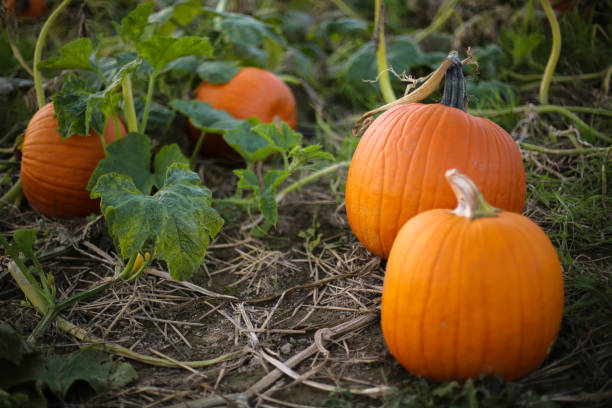by Sheyna Haisman-Holmes
This is the season when bright orange pumpkins start appearing everywhere, calling to our eyes that fall is upon us. It’s the lovely beginnings of winter squash season! These edible gourds may have us thinking of carving pumpkins, pumpkin pie, pumpkin coffee, pureed soups, stuffed squash and more. Pumpkins and other winter squash hold nutrient dense qualities that we can benefit from as this season draws us inwards.
The qualities of pumpkins are cold, dry and sweet. The sweet flavor is kapha dosha, which needs to be increased at this time of year to help balance vata dosha. Pumpkin works to pacify pitta dosha, which may seem surprising. They are in the Curcurbitaceae family with cucumbers and other pitta pacifying gourds. If we notice, pumpkins are usually ready and ripe well before Halloween comes around, making their season closer to the transition time of the seasons before autumn equinox. This time of transition from pitta season to vata season is when we can consume pumpkins to cleanse excess pitta and begin to nourish our systems for the coming fall and winter. As we move deeper into vata season, we can start eating other available winter squash like butternut, delicata, acorn, kabocha, red kuri, carnival squash and more.
Pumpkin is one of those foods that grows in a specific season to provide nourishing health benefits, but needs some fine tuning to make it align more with the body’s needs at this time of year. When you pick one up, it is heavy and hard, but inside is somewhat hollow and light. It has this duality of being grounding and nourishing, while at the same time it can be a bit light and dry. Many other foods have this characteristic where their qualities change after being cooked. Cooking it with oils and fats helps counterbalance these qualities and allow their nourishing qualities to come through. Adding warming spices to pumpkin recipes can help to make it less cold and more digestible as well.
Consuming pumpkin can be grounding, comforting, calming and muscle relaxing. Pumpkin is soothing to the GI tract and helps relieve constipation and soothes irritated bowels. They contain high levels of magnesium and potassium, as well as tryptophan which encourages sleepiness. Pumpkins have beta carotene (vitamin A), which is good for the skin, hair and eyes. This connects to cellular health and prevents damage from free radicals.
Consider experimenting with pumpkin this year! It can be baked and pureed, cubed and softened in a soup, roasted with other veggies, baked into bread or healthy cookies and more! Remember that the foods growing seasonally are medicinal for the season and helps to nourish what our bodies need just at the right time 🙂
10/11/23
